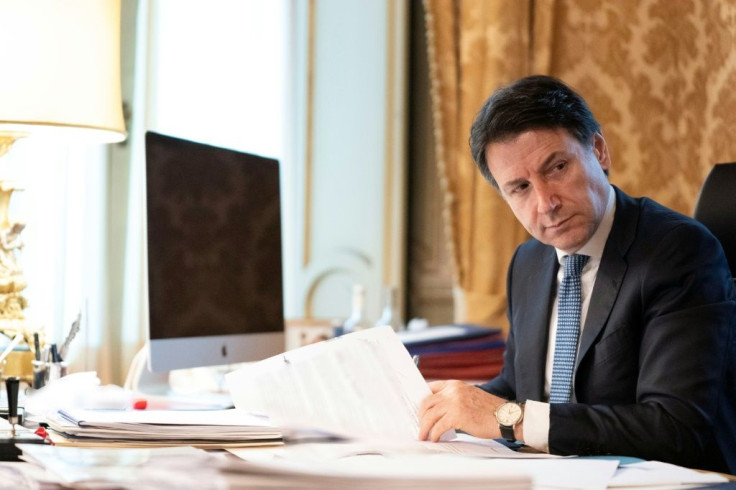Italy PM Takes Wait And See Approach To EU Virus Rescue

Italian Prime Minster Giuseppe Conte said Wednesday he had still not decided whether to tap an EU economic rescue package designed to deal with the coronavirus pandemic.
EU member states ended weeks of wrangling and agreed the 500-billion-euro ($545-billion) emergency plan last Thursday.
It includes use of a 420-billion-euro European Stability Mechanism (ESM) bailout fund created during the eurozone debt crisis in 2012.
But the ESM is politically toxic in Italy because its use is usually accompanied by strict financial oversight from Brussels.
Conte has come under attack from political rivals in Rome for agreeing to the plan.
His government has countered that it only signed up after winning the crucial concession of getting the usual conditions on the ESM's use dropped.
Conte wrote in a Facebook post Wednesday that he will wait and see whether any new conditions besides using the money to deal with economic damage wrought by the pandemic emerge.
"We will need to wait before assessing whether this new credit line will be linked to different mechanisms and procedures from those originally agreed," Conte wrote.
The money "does not have, in principle, humiliating conditions of any kind," said Conte.
But he added the he wanted "to read and study it carefully" before agreeing to the rescue's terms.
Italy shut down most businesses on March 12 to curb the spread of a disease that has now officially claimed 21,645 lives in the Mediterranean country.
The International Monetary Fund's latest forecast shows Italy's economy -- the eurozone's third-largest last year -- shrinking by 9.1 percent this year.
© Copyright AFP {{Year}}. All rights reserved.





















